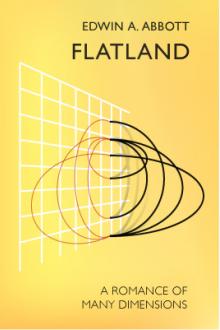Lorna Doone: A Romance of Exmoor, R. D. Blackmore [websites to read books for free txt] 📗

- Author: R. D. Blackmore
Book online «Lorna Doone: A Romance of Exmoor, R. D. Blackmore [websites to read books for free txt] 📗». Author R. D. Blackmore
What could I do with this little thing? All my sense of modesty, and value for my dinner, were against my over-pressing all the graceful hints I had given about Lorna. Ruth was just a girl of that sort, who will not believe one word, except from her own seeing; not so much from any doubt, as from the practice of using eyes which have been in business.
I asked Cousin Ruth (as we used to call her, though the cousinship was distant) what was become of Uncle Ben, and how it was that we never heard anything of or from him now. She replied that she hardly knew what to make of her grandfather's manner of carrying on, for the last half-year or more. He was apt to leave his home, she said, at any hour of the day or night; going none knew whither, and returning no one might say when. And his dress, in her opinion, was enough to frighten a hodman, of a scavenger of the roads, instead of the decent suit of kersey, or of Sabbath doeskins, such as had won the respect and reverence of his fellow-townsmen. But the worst of all things was, as she confessed with tears in her eyes, that the poor old gentleman had something weighing heavily on his mind.
'It will shorten his days, Cousin Ridd,' she said, for she never would call me Cousin John; 'he has no enjoyment of anything that he eats or drinks, nor even in counting his money, as he used to do all Sunday; indeed no pleasure in anything, unless it be smoking his pipe, and thinking and staring at bits of brown stone, which he pulls, every now and then, out of his pockets. And the business he used to take such pride in is now left almost entirely to the foreman, and to me.'
'And what will become of you, dear Ruth, if anything happens to the old man?'
'I am sure I know not,' she answered simply; 'and I cannot bear to think of it. It must depend, I suppose, upon dear grandfather's pleasure about me.'
'It must rather depend,' said I, though having no business to say it, 'upon your own good pleasure, Ruth; for all the world will pay court to you.'
'That is the very thing which I never could endure. I have begged dear grandfather to leave no chance of that. When he has threatened me with poverty, as he does sometimes, I have always met him truly, with the answer that I feared one thing a great deal worse than poverty; namely, to be an heiress. But I cannot make him believe it. Only think how strange, Cousin Ridd, I cannot make him believe it.'
'It is not strange at all,' I answered; 'considering how he values money. Neither would any one else believe you, except by looking into your true, and very pretty eyes, dear.'
Now I beg that no one will suspect for a single moment, either that I did not mean exactly what I said, or meant a single atom more, or would not have said the same, if Lorna had been standing by. What I had always liked in Ruth, was the calm, straightforward gaze, and beauty of her large brown eyes. Indeed I had spoken of them to Lorna, as the only ones to be compared (though not for more than a moment) to her own, for truth and light, but never for depth and softness. But now the little maiden dropped them, and turned away, without reply.
'I will go and see to my horse,' I said; 'the boy that has taken him seemed surprised at his having no horns on his forehead. Perhaps he will lead him into the shop, and feed him upon broadcloth.'
'Oh, he is such a stupid boy,' Ruth answered with great sympathy: 'how quick of you to observe that now: and you call yourself “Slow John Ridd!” I never did see such a stupid boy: sometimes he spoils my temper. But you must be back in half an hour, at the latest, Cousin Ridd. You see I remember what you are; when once you get among horses, or cows, or things of that sort.'
'Things of that sort! Well done, Ruth! One would think you were quite a Cockney.'
Uncle Reuben did not come home to his dinner; and his granddaughter said she had strictest orders never to expect him. Therefore we had none to dine with us, except the foreman of the shop, a worthy man, named Thomas Cockram, fifty years of age or so. He seemed to me to have strong intentions of his own about little Ruth, and on that account to regard me with a wholly undue malevolence. And perhaps, in order to justify him, I may have been more attentive to her than otherwise need have been; at any rate, Ruth and I were pleasant; and he the very opposite.
'My dear Cousin Ruth,' I said, on purpose to vex Master Cockram, because he eyed us so heavily, and squinted to unluckily, 'we have long been looking for you at our Plover's Barrows farm. You remember how you used to love hunting for eggs in the morning, and hiding up in the tallat with Lizzie, for me to seek you among the hay, when the sun was down. Ah, Master Cockram, those are the things young people find their pleasure in, not in selling a yard of serge, and giving twopence-halfpenny change, and writing “settled” at the bottom, with a pencil that has blacked their teeth. Now, Master Cockram, you ought to come as far as our good farm, at once, and eat two new-laid eggs for breakfast, and be made to look quite young again. Our good Annie would cook for you; and you should have the hot new milk and the pope's eye from the mutton; and every foot of you would become a yard in about a fortnight.' And hereupon, I spread my chest, to show him an example. Ruth could not keep her countenance: but I saw that she thought it wrong of me; and would scold me, if ever I gave her the chance of taking those little liberties. However, he deserved it all, according to my young ideas, for his great impertinence in aiming at my cousin.
But what I said was far less grievous to a man of honest mind than little Ruth's own behaviour. I could hardly have believed that so thoroughly true a girl, and one so proud and upright, could have got rid of any man so cleverly as she got rid of Master Thomas Cockram. She gave him not even a glass of wine, but commended to his notice, with a sweet and thoughtful gravity, some invoice which must be corrected, before her dear grandfather should return; and to amend which three great ledgers must be searched from first to last. Thomas Cockram winked at me, with the worst of his two wrong eyes; as much as to say, 'I understand it; but I cannot help myself. Only you look out, if ever'—and before he had finished winking, the door was shut behind him. Then Ruth said to me in the simplest manner, 'You have ridden far today, Cousin Ridd; and have far to ride to get home again. What will dear Aunt Ridd say, if we send you away without nourishment? All the keys are in my keeping, and dear grandfather has the finest wine, not to be matched in the west of England,





Comments (0)